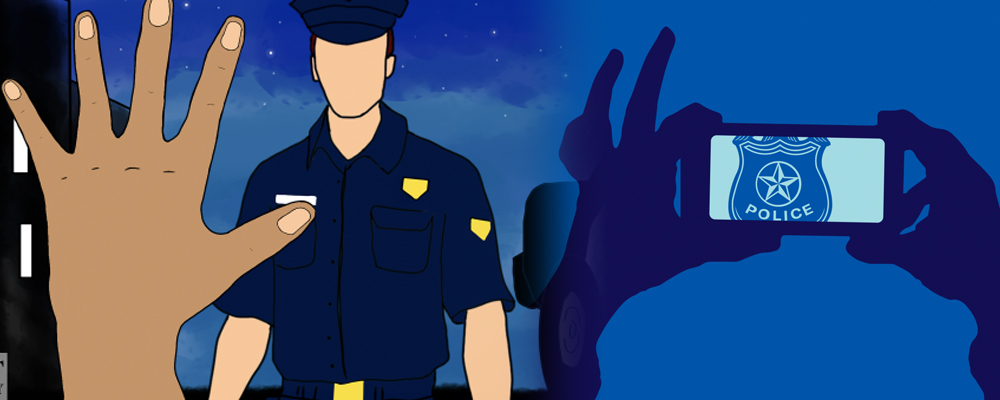The law relating to the circumstances under which a police officer can be recorded might seem unclear as a specific provision under any statute does not discuss this act. In order to understand whether and in what circumstances an ordinary man is permitted to record an on-duty police officer needs to be interpreted from the related provisions.
Fundamental Right –
The Constitution of India enshrines the Right to life and liberty under Article 21. A recent interpretation by the constitutional bench in the case of K.S. Puttaswamy v. Union of India is famously known as the Right to Privacy judgment put a much-debated topic to rest and widened the scope of Article 21 by upholding the Right to Privacy as a fundamental right. While the court had multiple views regarding privacy, Justice Nariman had created content of privacy by stating that the right is expected to pave the way for personal autonomy and choice. The right of a police officer is also protected under this article just like any other ordinary human being. But the acts done by police officers on duty and in the discharge of their functions cannot be considered to be violating their personal autonomy. Thus, they do not come under the purview of the right to privacy. While recording an on-duty police officer, one shall not be violating Article 21 of the Indian Constitution.
Need A Legal Advice
The internet is not a lawyer and neither are you. Talk to a real lawyer about your legal issue

The reason for creating a video of the on-duty police officer can be to have certain evidence regarding their actions. Thus, if the ordinary man considers some actions of the on-duty officer to be unfair or unjust, he can record such actions. By doing this, he can act like a whistle-blower. An individual, frequently an employee, who divulges information about conduct inside a private or public organization that is thought to be unlawful, immoral, illegitimate, dangerous, or fraudulent is known as a whistleblower. The State of Kerela under Section 33(2), Kerela Police Act, 2011 has specifically included a provision with respect to this which states that: no police officer should stop a citizen from legally recording any police action or conduct that is performed in a public or private area using audio, video, or electronic means. This act was also justified by the Kolkata High Court in the year 2008 when it was held that a policeman cannot take a mobile phone just because his video was captured because he is a public servant performing his duties.
However, with regard to the act of recording a police officer while on duty there are certain provisions of the Indian Penal Code that must be critically analyzed. Section 21 of the Penal Code defines public servants. According to this definition, when exercising any authority or carrying out any obligation conferred by this Act, the competent authority, every arbitrator, and every officer appointed by the Central Government or the competent authority will be deemed to be public servants. Thus, a police officer shall come under the scope of this section and be considered to be a public servant.
Sections –
Section 186 of the Code declares the creation of obstruction for the public servant in the discharge of public functions to be an offense. Thus, if any person voluntarily obstructs a public servant while they are discharging public functions can be subjected to imprisonment for a term which might exceed three months or a fine up to five hundred rupees or both. Thus, if a police officer is lawfully discharging their functions and any obstruction is created due to video recording, then the person recording such video shall be held criminally liable.
Section 353 of the Code deals with any act of assault or criminal force to deter the public servant from performing their duties. The punishment which is prescribed for this act is imprisonment which may extend to five years or fine or both. While recording such video, it needs to be ensured that it is not facilitated by any act of assault or by use of criminal force as such attempts shall lead to the commission of an offense.
Therefore, it has been observed that the Indian law creates a balance between the right of the citizens to avail equal protection of the law and the need for providing certain protection to the public servants to enable the performance of their public functions. It can be concluded that if the police officers conduct themselves in an unlawful manner, then it can be recorded by the members of the public. Even though recording of any lawful acts of the police officer is not specifically prohibited under any section of the penal code, it is understood that taking the permission of the police officer before recording shall ensure that one is not being subjected to any criminal liability in the future. The State laws regarding the recording of an on-duty police officer are also required to be taken into consideration, and if the laws prohibit such acts one should refrain from recording





 Talk to a Lawyer
Talk to a Lawyer